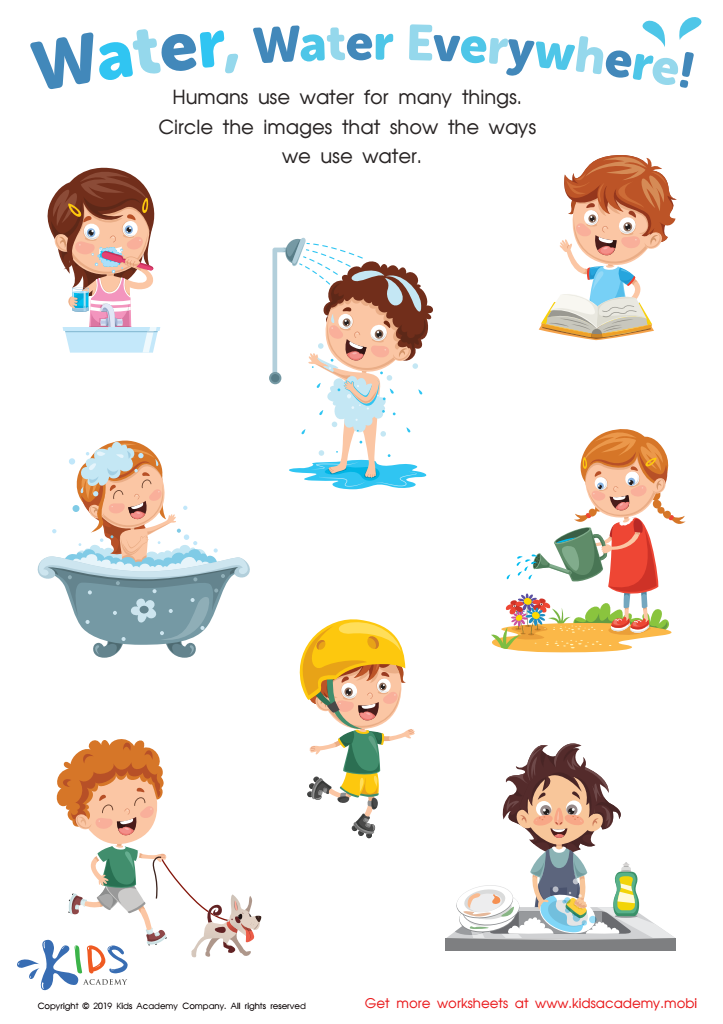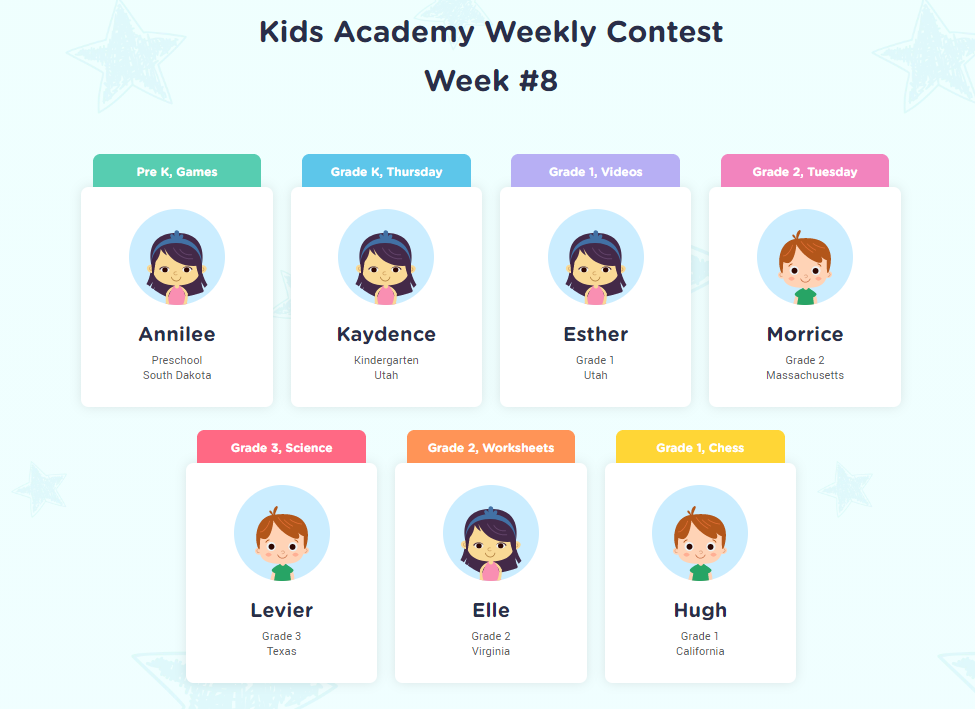Water cycle understanding Worksheets for Kids
1 filtered results
-
From - To


Water, Water Everywhere! Worksheet
Question/Answer
What are some effective activities to train students’ Water cycle understanding skill when teaching them about Plants and Animals?
Effective activities include creating water cycle models using everyday materials, interactive games that simulate the journey of a water droplet, conducting simple evaporation and condensation experiments, drawing and labeling water cycle diagrams, and storytelling or role-playing from the perspective of a water molecule.
How to test a Kindergarten student’s Water cycle understanding skills?
To test a Kindergarten student's understanding of the Water Cycle, use simple, interactive activities like drawing the Water Cycle, matching games with water cycle stages (evaporation, condensation, precipitation, collection), or storytelling with correct sequence identification. Incorporate hands-on experiments such as simulating rain with a water-filled container and heat source to observe evaporation and condensation, encouraging them to explain each step.
How does the mastery of the Water cycle understanding skill affect a student's performance at an early age?
Mastering the Water Cycle at an early age enhances a student's performance by improving comprehension in science, fostering critical thinking, and establishing a foundation for understanding complex environmental systems. This early proficiency can lead to better academic outcomes in related subjects, encourage curiosity about the natural world, and support the development of problem-solving skills.
 Assign to the classroom
Assign to the classroom












